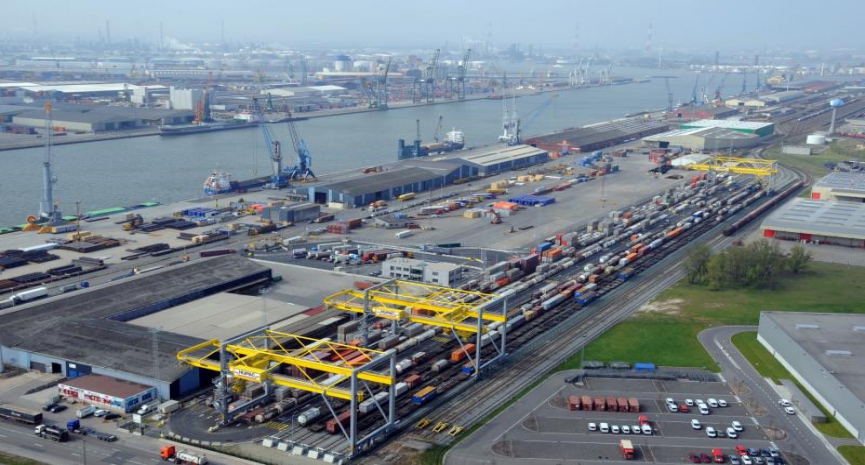Container volume at Port of Antwerp crosses 10 mn TEU mark for first time ever
The port of Antwerp will close 2016 with a projected record volume of over 214 million tonnes of freight handled.

Dec 29, 2016: The port of Antwerp will close 2016 with a projected record volume of over 214 million tonnes of freight handled.
Making another record, the shipping container volume has risen above 10 million TEU for the first time in the history of the port. Liquid bulk has also witnessed a year-on-year expansion with an estimated volume of nearly 70 million tonnes.
While the conventional breakbulk and dry bulk sectors have seen positive figures, the overall totals for both segments are negative. The continuing trend towards containerisation has depressed the volumes of among other things - fruit and paper. Meanwhile the volumes of coal and ore have fallen drastically in all North-West European ports.
Containers and breakbulk
The container volume rose at the port of Antwerp by 4.1 percent during the past 12 months and is expected to end the year at 117,979,180 tonnes. In terms of the number of containers this represents 10,056,603 TEU, an increase of 4.2 percent. With these excellent growth figures Antwerp has further expanded its market share in the Hamburg – Le Havre range. Antwerp has also managed to considerably improve its position in the Far East trade over the past few years, at the expense of its direct competitors Rotterdam and Hamburg.
The situation among international container shipping companies has altered dramatically in the past few years, with companies entering into collaboration and forming alliances in order to achieve cost savings and efficiencies of scale. In 2017 the shipping scene will be dominated by 2M, Ocean Alliance and THE Alliance, making it more important than ever for ports to secure their place in the respective sailing schedules. So far Antwerp has managed very well in this respect.
In the meantime the ro/ro volume has declined by 1.9 percent, totalling 4,564,619 tonnes at the end of the 12-month period. This negative result is due to the performance on the export side, as ro/ro exports to Africa and the Near East are down by 15 percent and 18 percent respectively. In fact exports to all countries around the Persian Gulf have dipped. On the import side, however, the ro/ro volume is up by 9.5 percent.
The conventional breakbulk volume for its part contracted by 2.4 percent, ending the year at 9,764,796 tonnes. Steel on the other hand experienced strong growth of 12 percent, but the lower volumes of non-ferrous metals, paper & cellulose and fruit meant that the amount of conventional breakbulk was down overall.
Liquid bulk
The liquid bulk volume this year is up by 4.5 percent to 69,653,984 tonnes, with tank storage companies experiencing particularly strong growth. The shipping volume on behalf of the chemical industry has remained fairly stable.
Dry bulk
The volume of dry bulk continues to decline: after four quarters the figure stood at 12,441,379 tonnes, a fall of 9.8 percent compared with the same period in 2015. More specifically the volumes of ore, fertilisers, minerals and coal all showed negative figures.
Seagoing ships
The number of seagoing ships calling at Antwerp rose by 0.7 percent in 2016, by December 31 - a total of 14,523 ships are expected to have visited Antwerp. Apart from the increased number of ships the growth in gross tonnage is nothing less than spectacular, up 9.5 percent to 402,665,000 GT. This figure illustrates well how ships visiting Antwerp are getting bigger and bigger: in 2016 Antwerp welcomed 458 container carriers of 13,000 TEU or more, whereas last year the number in this category was only 320.


